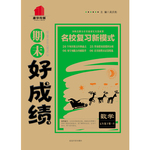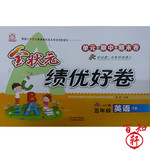题目内容
She made the demand that she ________ at once.
A. leave B. leaves C. left D. to be left
A
【解析】
试题分析:考查虚拟语气。句意:她要求她立刻离开。表示命令、要求、建议的词order, command, request, require, demand, suggest等后面的从句用虚拟语气,即should+动词原形,should可省略,这里省略了should,故选A。
考点:考查虚拟语气

 期末好成绩系列答案
期末好成绩系列答案 99加1领先期末特训卷系列答案
99加1领先期末特训卷系列答案 百强名校期末冲刺100分系列答案
百强名校期末冲刺100分系列答案 好成绩1加1期末冲刺100分系列答案
好成绩1加1期末冲刺100分系列答案 金状元绩优好卷系列答案
金状元绩优好卷系列答案From Chengdu to Jiuzhaigou, you can travel along the East Line not only the other line going past Dujiangyan and Wenchuan. Take a regular bus from Chengdu Chengbei Bus Station from 9:00 to 16:30. It only takes about three hours to Jiangyou. The ticket is CNY50.00 net per person. Up along Fujiang River, you will pass the second largest city in Sichuan, Mianyang and enjoy the picturesque scenery.
There is bus available to the destination from 6:30 to 13:30 in Mianyang Pingzheng Bus Station,The one way ticket is about CNY95.00 net per person. In this case, you can not get stop at Jiangyou and Pingwu. This is one option for you.
In Jiangyou, visit the Former Residence of Li Bai, the famous poet in Tang Dynasty. If time permits, you can also take a look at the Doutuan Mountain, which is famous for its unique sceneries and also holdsnational gliding (滑翔) campaigns every year. Take bus at Jiangyou Bus Station to Pingwu and stay there for one night. Our recommendation is to stay at the Pingwu Hotel, which is the first hotel that can serve foreigners in the small city. The contact phone number is 0816 - 8822022. Pingwu has the best royal Buddhist temples in Ming Dynasty, Bao'en Temple and the historic relics in the period of Three Kingdoms (220-280).
The next day, take bus to Huanglong, which is 120 kilometers away from Pingwu. It only takes about 2 hours to arrive at one of the world's most naturally fantastic locations - the Huanglong Scenic and Historic Areas. The bus ticket is CNY30.00 net per person.
You can easily find the bus from Chuanzhusi to Jiuzhaigou. The journey time is 1.5 hours. Here we would like to recommend another hotel in Jiuzhaigou for you, Mofang Hotel. The contact number is 0837-7764926.
Two days in Jiuzhaigou Valley can give you enough time to explore there. Sometimes, you need to purchase the extra charge for entering the valley twice.
1.What is the tour route of the East Line from Chengdu to Jiuzhaigou according to the passage?
A. Chengdu - Mianyang - Jiangyou - Huanglong - Pingwu - Chuanzhusi - Jiuzhaigou
B. Chengdu - Mianyang - Fujiang - Jiangyou - Pingwu - Huanglong - Jiuzhaigou
C. Chengdu - Mianyang - Jiangyou - Pingwu - Huanglong - Chuanzhusi - Jiuzhaigou
D. Chengdu - Mianyang - Jiangyou - Pingwu - Chuanzhusi-Huanglong - Jiuzhaigou
2.Where is this passage likely to appear?
A. An advertisement of local hotels.
B. A travel guide for foreign travelers.
C. A geography book of Sichuan Province
D. A newspaper for English learners.
3.If you take the bus from Pingzheng Bus Station to Jiuzhaigou, you can________.
A. directly get to the destination
B. get on the bus before 2 o’clock pm
C. also visit Bao’en Temple halfway
D. enjoy the scenery along Fujiang River
4.From this passage, which of the following statement is TRUE?
A. Pingwu Hotel is the only choice for foreign guests in Pingwu.
B. We’d better pay the entrance fee twice in Jiuzhaigou.
C. We can travel from Chengdu to Jiuzhaigou along different routes.
D. Doutuan Mountain is famous for the Former Residence of Li Bai.